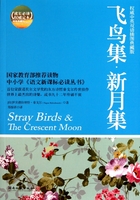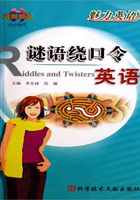当面临人生抉择时,你自己便可以做出抉择。我们可以由先知来指引,也可以被内心的“怪兽”来操控,这是个令人困扰的问题。没有人会违心地去做那些自己不愿意做的事情。 and can be completely controlled by our will power.
Habit is a matter of acquirement. You hear people say, “He comes by this or that naturally, a chip off the old block, ” meaning that he is only doing what his parents did. This is quite often the case, but there is no reason for it, for a person can break a habit just the moment he masters the “I will.” A man may have been a “good-for-nothing” all his life up to this very minute, but from this time on he begins to amount to something. Even old men have suddenly changed and accomplished wonders.
“I lost my opportunity,” says one. That may be true, but by sheer force of will, we can find a way to bring us another opportunity. There is no truth in the saying that opportunity knocks at our door but once in a lifetime. The fact is, opportunity never seeks us; we must seek it. What usually turns out to be one man’s opportunity was another man’s loss. In this day one man’s brain is matched against another’s. It is often the quickness of brain action that determines the result. One man thinks “I will do it,” but while he procrastinates the other goes ahead and does the work. They both have the same opportunity. The one will complain of his lost chance. But it should teach him a lesson, and it will, if he is seeking the path that leads to success.
Many persons read good books, but say they do not get much good out of them. They do not realize that all any book or any lesson course can do is to awaken them to their possibilities; to stimulate them to use their will power. You may teach a person from now until doom’s day, but that person will only know what he learns himself. “You can lead him to the fountain, but you can’t make him drink.”
每个人的性格都有双重性:一方面督促我前进,而另一方面则怂恿我们倒退。如果心有所想,那么你便可以主宰命运。我们的行为方式完全是由自身强化训练造就的,如同磨料一样,我们可以完全利用意志力来培养自己。
习惯是生活中的渐渐积累形成的。人们常说:“某人天生如此——很像他的父母。”这种特征不过是父母遗传给我们的。这是普遍的现象。然而一旦你下定决心,你就可以通过意志力来改变某些先天性的习惯。也许一个 “无所事事”的人在这一刻立下雄心壮志,那么从这时起,他的人生便会截然不同。即便是老年人,也可以做出改变,创造奇迹。
有人会说:“我已经丧失了机会。”这或许是事实,可是凭借顽强的精神我们完全可以寻觅新的机遇。有人说,机遇只有一次,错过便绝不会再回头。根本没有事实能证实这种说法。在实际生活里,机会永远不会主动光顾你,而是需要我们主动去寻觅。通常情况下,当一个人抓住眼前的机遇时,便意味着另一个人已经错过了机会。假如两个人同时面对同一件事时,那么反应敏捷的人通常能够抢得先机。一个人正琢磨着“我可以做到”却耽搁了时机,而另一个已提前行动了。他们拥有同样的机会,但结果却不尽相同。有人会抱怨自己错失机会。不过失败的人应该从中汲取经验教训,并探求成功之路。
有些人读过的书不计其数,然而却说从中获益甚微。他们并没有认识到书本的作用——任何知识或经验都可以激发潜能,增加取得成功的几率。你可以从早到晚、不分昼夜地教人学知识,然而他记住的也只是只言片语。有句古语很有道理:“你可以将他引到泉边,但喝不喝就是他的事了。”
成为什么样的人在于哪种性格在起主导作用。每种精神因素都在试图操纵我们的意志,唯有意志力才能做出选择。如果一个人全身心地投入到工作中去,You alone can decide when the turning point will come. It is a matter of choice whether we allow our diviner self to control us or whether we will be controlled by the brute within us. No man has to do anything he does not want to do. He is therefore the director of his life if he wills to be. What we are to do,那么极有可能改变自己的人生轨迹,甚至发生奇迹。 如果你愿意,你就肯定能成功,因为意愿能够发现合适的方法或创造奇迹。
心灵小语
机遇来临,我们可曾集中精力好好把握?做事情时,是否全神贯注?阅读书籍时, is the result of our training. We are like putty,注意力是否集中?当我们抱怨得到与付出不成正比时,问问自己是否做到了以上几点。如果我们学习或做事时,注意力不集中,那就无法学到任何知识的精髓,也就无法做好任何事。而当心不在焉成为一种习惯,必然会影响未来的人生。
记忆填空
1. The__ alone decides the issue. A man by one supreme effort of the will may change his__ career and almost accomplish miracles. You may__ that man. You can be if you will to be, for will can find a way or__ one.
2. This is quite often the case, but there is no__ for it, for a person can break a__ just the moment he masters the“I__.” A man may have been a“good-for-nothing” all his life up to this very minute, but from this time__ he begins to amount to something.
3. The one will complain of his__ chance. But it should teach him a__, and it will, if he is seeking the path that__ to success.
佳句翻译
1. 没有人会违心地去做那些自己不愿意做的事情。
译______________
2. 在实际生活里,机会永远不会主动光顾你,而是需要我们主动去寻觅。
译______________
3. 通常情况下,当一个人抓住眼前的机遇时,便意味着另一个人已经错过了机会。
译______________
短语应用
1. ...to stimulate them to use their will power.
stimulate sb. to do sth.:激励某人做某事
造______________
2. ...you can’t make him drink.
make sb. do:让某人做某事
造______________
向自己要时间
How to Find Time
戴尔·特纳 / Dale Turner
A commercial flashing on our TV screens these days shows men and women trying to buy a bit of time. It catches the plight of most of us in our hurry-scurry world. “I don’t want a 40-hour week,” says Nicholas Murray Butler, former president of Columbia University. “I want a 40-hour day.”
I never cease to marvel at how some people, working with the same number of hours we all have, seem to get so much more done. How do they do it?
For one thing, they don’t squander the bits and pieces of time that punctuate our days. Rather than wasting energy getting irritated waiting for a phone call or a repair person, they capture those moments creatively. They keep tools handy—a pen, a book, a pair of scissors, a needle, whatever.
Clement C. Moore was a teacher of classical languages. In the course of his career, he published a Hebrew dictionary and was a major benefactor of the General Theological Seminary in New York City.
But it is not for the seminary or his dictionary that he is remembered. It is for a set of verses dashed off in 1822 in an hour of yuletide inspiration—verses that he stuffed away as if of no importance.
The magic lines begin: “It was the night before Christmas, when all through the house...” They never brought Moore a penny, but they did bring him immortality.
Such constructive use of time is available to us all. A Seattle businessman carries a briefcase in which he has paper and envelopes for penning letters. In odd moments he keeps countless friendships alive.
A woman I know memorized the sermon on the Mount while commuting. A bedspread in our home was quilted by my mother-in-law who, though extremely busy, found minutes to prepare a beautiful gift full of memories for her family.













